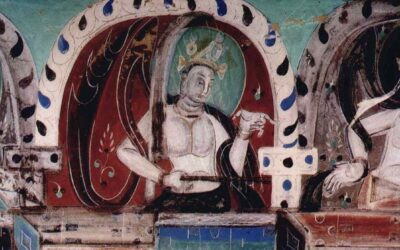The book “Hanzi for HSK 1-3” now available in Greek language
This April, the translation of my book Hanzi for HSK 1-3 has been published in the main digital bookstores in Greece. The Greek version of this book, from the pen of Stefanos Karampalis, has been one of the most complex of this series, because given the different structure of the Greek script, we have had to solve together numerous challenges, ranging from the explanations contained in the images, to the design of an original cover. With this translation the book is now available in 7 languages, including English, Spanish, French, German, Italian, Russian, and Greek.
A must-have book for beginners in the Chinese language.
The book. Originally published in English for Live the language Mandarin School, it was the first attempt to present English-speaking readers with a simple version of my theories regarding the teaching of the Chinese characters. It was important for me to understand that many students need a gradual learning of Chinese writing, not only in the presentation of the lessons, which I always tried to make accessible to all levels, but in the sheer physical presentation of the book, with reduced size and price that allows the student to face a definite and reasonable learning task.
This book, a version for students of the basic levels of Chinese of my more complex books on the theme, Chinese Characters, an easy learning based on their etymology and evolution, presents readers with a simple way to learn how Chinese characters were formed and reached their present meaning. It has been recognized by readers as a great help in the study and memorization of Chinese characters, because learning their meaning according to their components, the student is sure to advance with firm steps in the knowledge of their writing.
Since this work contains only the little more than 600 characters necessary for the exams of the first three levels, making it a little difficult to maintain the novel system of study based on the families of characters, we have included some characters that are not so frequent, in order to give a clear sense to the whole work and make it an introduction to more advanced studies.
The authors
Pedro Ceinos Arcones is a Spanish writer with numerous works published in Spanish and English. Author of the posts on this website, his publications include Abya-Yala, scenes of an Indian history of America, A Short History of China, The Tiger in China: image and Symbol, or Matriarchy in China. His work could be characterized by his interest in unconventional topics related to Chinese culture and those of its minorities and his efforts to present some aspects of Chinese culture from a different angle. This is the second of his books, after Legends of the Goddess mother, translated to Greek.
Stefanos Karampalis was born, raised and currently resides in Greece. He works as an English-Greek translator and copywriter. To date, he has attended 5 translation-related programs from the University of Athens, a comics translation seminar and an 1-year intensive program of the School of meta|φραση. He is a member of the Panhellenic Association of Translators. In total, he has translated almost thirty e-books from English into Greek, and the number is growing. One can learn about him and his work on his website.
The book was published by Tektime, an Italian publishing house specialized in the translation and distribution of original works. The book is available in the main ebooks bookstores, such as Kobo.
Last posts
Dunhuang in the Silk Road
Dunhuang in the Silk RoadDunhuang is a city in the middle of the desert. Over its 2,000-year history, it has always been the last Chinese outpost before reaching the Western Regions—those kingdoms more or less dominated by the imperial regimes, yet showing customs so...
Discover China’s Largest and Most Beautiful Salt Lake
Discover China’s Largest and Most Beautiful Salt Lake The development of tourism and transportation in China is bringing to light places that were previously very hard to access and virtually unknown. Some of these destinations are beginning to gain a certain...
A Giant Mandala in the Heart of Tibet
A Giant Mandala in the Heart of Tibet The Palkor of Gyantze is one of Tibet’s great marvels and a unique jewel of universal architecture and art. Its shape, scale, and iconography defy comparison with any other construction. Amidst some of the highest mountains of...







